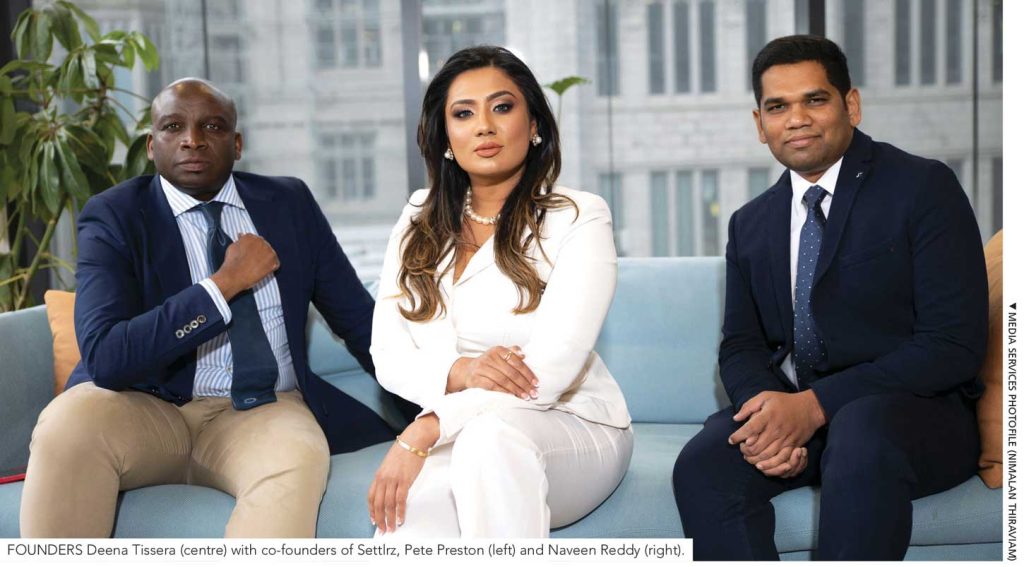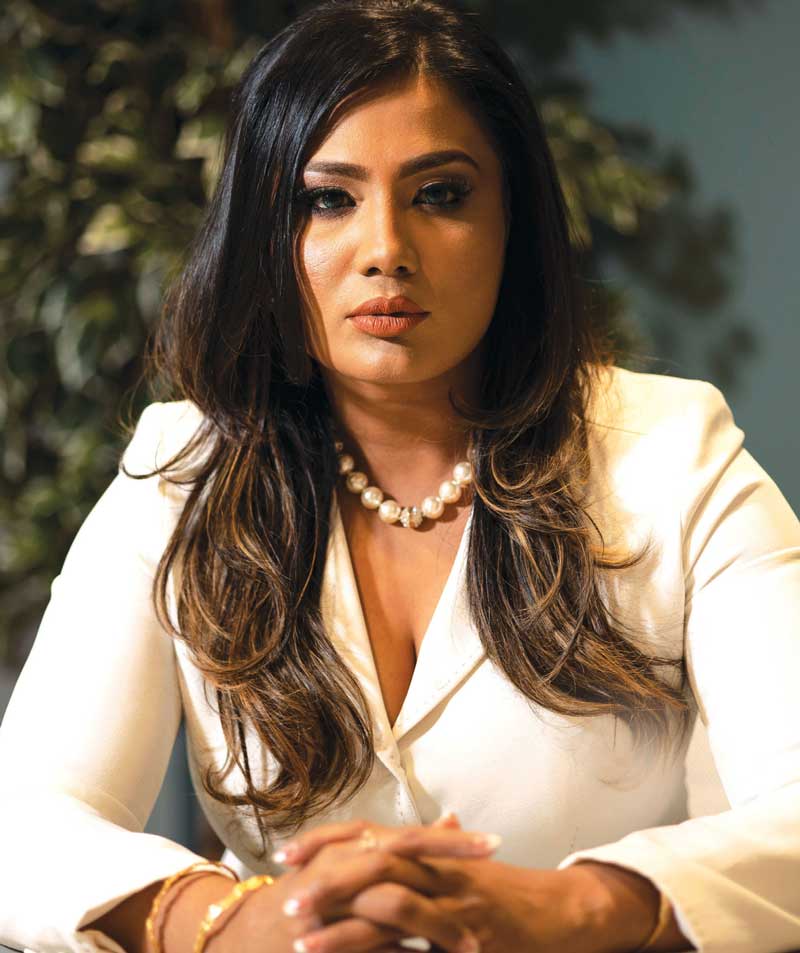CONNECT Aberdeen
Deena Tissera
Embracing diversity
The daughter of a doctor and an entrepreneur, and a former beauty queen and movie star, Deena Tissera has made her mark in diverse roles – viz. a politician, an entrepreneur and a former beauty queen in her own right – while continuing to be driven by a passion for social justice and positive change.
Hailing from Sri Lanka and having moved to Scotland to pursue her higher education, she has earned the distinction of being the first woman of colour elected to the Aberdeen City Council.
In this role, Tissera advocates for policies promoting equality, tackling poverty and inclusive economic growth. Venturing beyond politics, her efforts to create positive change include cofounding an AI-driven app to help migrants settle in the UK.
In this exclusive interview with LMD International, she sheds light on what drives her passion for social justice… and her pursuit to inspire collective action for a brighter future.
– Compiled by Nicola Jayasundera
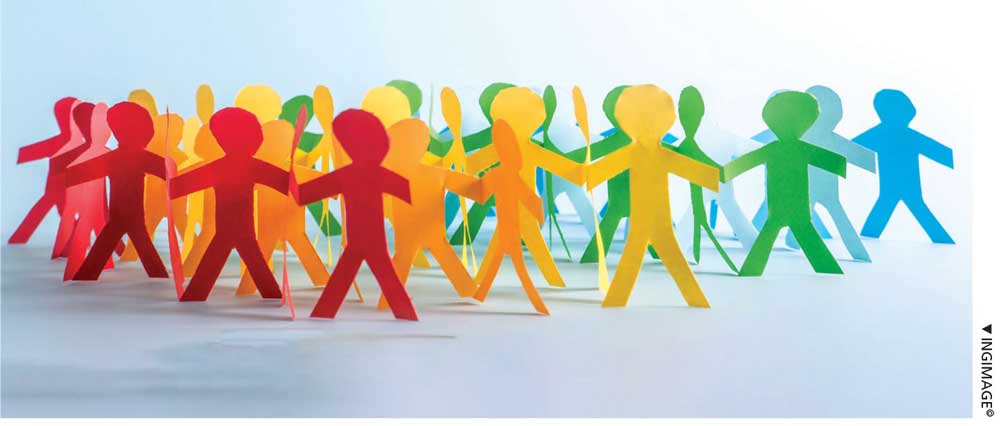
My journey is fuelled by a passion for social justice and drive to create positive change
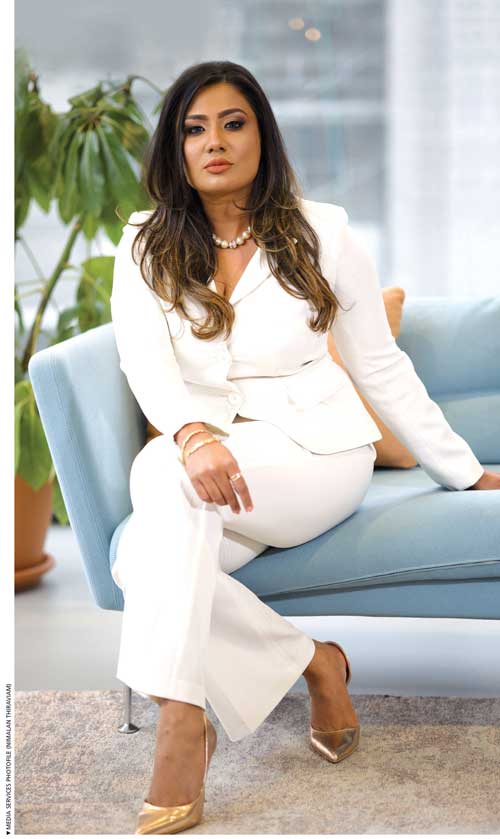
Q: How would you describe your Sri Lankan roots and connection with Sri Lanka?
A: My upbringing in Sri Lanka ingrained a deep connection to its rich culture, vibrant traditions and warmhearted people.
It’s the place of my birth and education, and where I witnessed the beauty of its diversity, resilience of the people and challenges they face. These experiences cultivated compassion, humility and empathy in me.
Though I’m now in the UK, I remain closely tied to my Sri Lankan heritage, and actively seek ways to give back to the country that shaped my world view and passion for social justice.
Q: What do you appreciate the most about Sri Lanka?
A: I truly appreciate Sri Lanka’s cultural diversity and heritage – it is a melting pot of various ethnicities, languages and religions. Its natural beauty, from pristine beaches to lush tea plantations and ancient ruins, is awe-inspiring.
But what truly stands out to me is the remarkable resilience and spirit of the Sri Lankan people, who come together with warmth and hospitality even in the face of challenges.
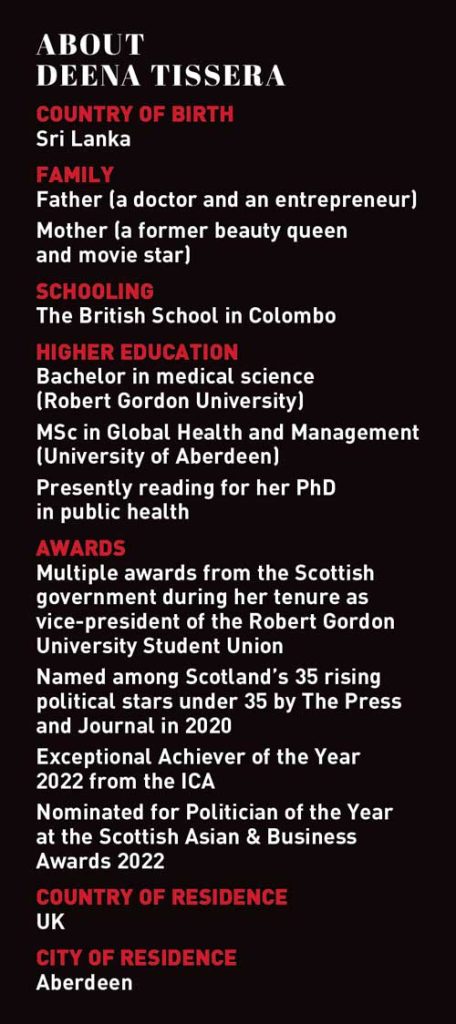
Q: As a woman who holds many titles – politician, entrepreneur and former beauty queen to name a few – what inspired you to pursue such a diverse range of vocations?
A: My journey is fuelled by a passion for social justice and drive to create positive change. Each vocation offers unique avenues to make an impact.
As a politician, I shape policies and advocate for marginalised communities; as an entrepreneur, I develop innovative solutions and address societal gaps. My experience as a former beauty queen taught me the power of using my voice and platform to raise awareness for important causes.
Embracing diverse roles reflects my belief that change can be achieved through various means. I’m determined to leverage every opportunity to make a difference.
My upbringing in Sri Lanka ingrained a deep connection to its rich culture, vibrant traditions and warmhearted people
Q: On reflection, what are your thoughts on being the first woman of colour to be elected to the Aberdeen City Council?
A: It fills me with pride and responsibility. Breaking barriers and paving the way for diverse backgrounds is an honour.
This achievement holds significance not only personally but for the communities I represent, sending a powerful message of diversity and inclusion in politics.
However, I am mindful of the expectations this role carries; I’m committed to representing constituents’ interests and amplifying under-represented voices. This milestone strengthens my dedication to promoting equality and fostering a more inclusive society for all.
Q: As a councillor for Scottish Labour, what initiatives or policies are you advocating for – and why?
A: I prioritise social justice, equality and community empowerment through government initiatives.
Key advocacies include addressing public health priorities, investing in education and skills training for equal opportunities, and promoting inclusive economic growth to reduce poverty and inequality.
I’m also passionate about environmental sustainability and transitioning to renewable energy sources.
These initiatives align with my core values, striving to create a fairer and prosperous society.
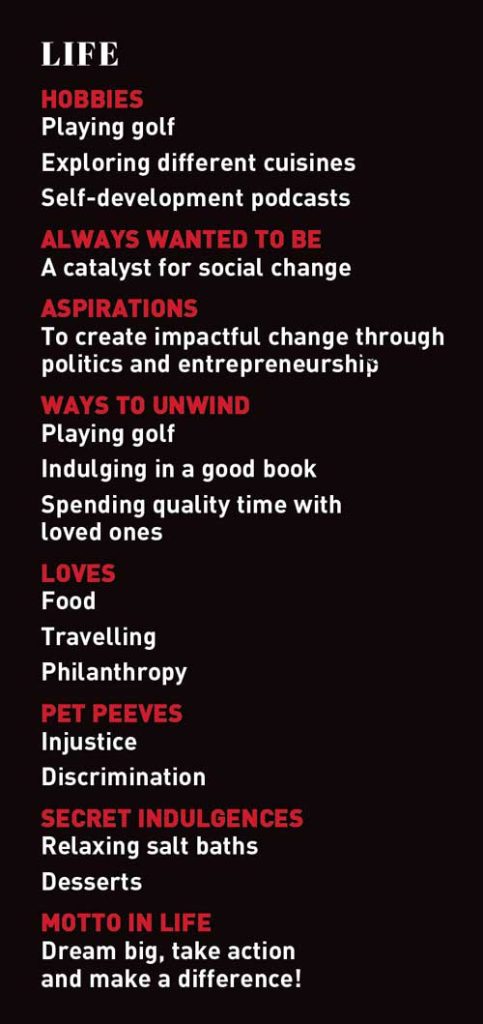
Q: Can you share a specific project that you’ve contributed to as a councillor, which has had a significant impact on the community?
A: Recently, I led a campaign against library closures, highlighting their importance as vital community assets that provide access to knowledge, education and community engagement.
Our collective action led to a judicial review of the local government’s closure decision. This project empowered residents to actively shape our community’s future through their involvement in local issues.
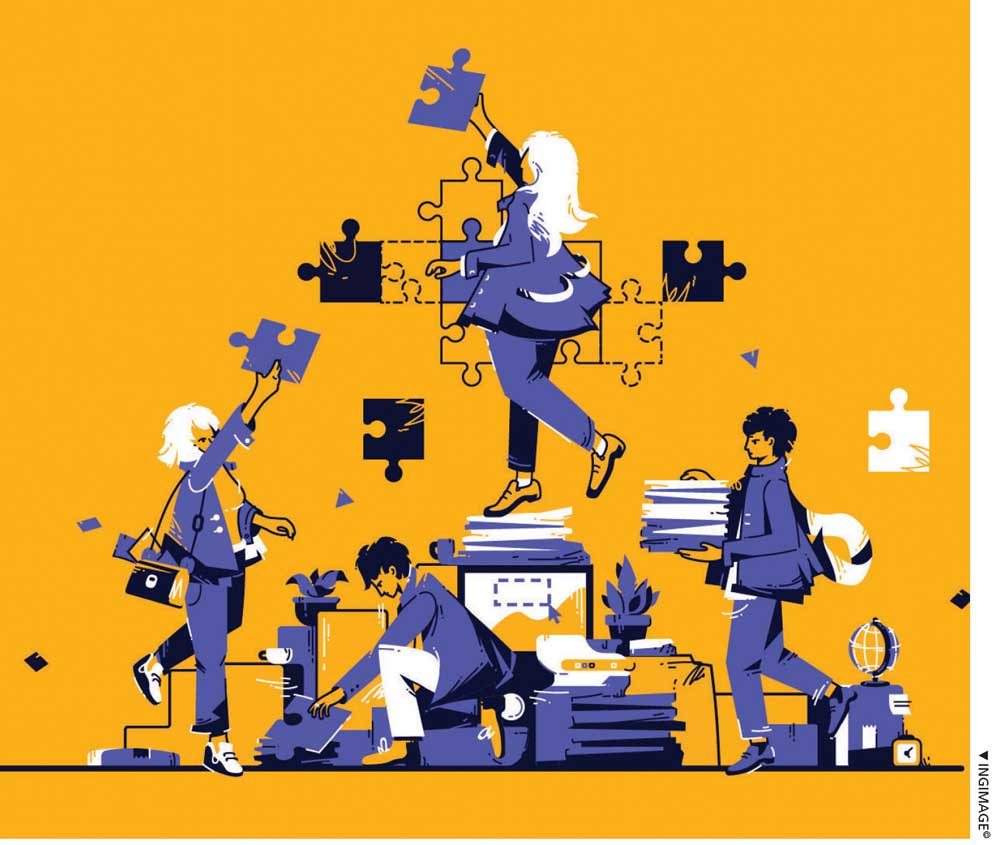
Q: And what motivated you to work for humanitarian causes?
A: Growing up in Sri Lanka during times of war, and witnessing the challenges faced by communities in conflict zones, disaster hit areas and rural regions deeply impacted me.
These experiences instilled empathy and a drive to make a difference to the lives of others.
Believing in equal opportunities, and a life free from discrimination and injustice, I engaged in philanthropic work with my father from a young age – and this shaped my career choices. Working for humanitarian causes is not only a personal commitment but also a way to contribute to a more equitable and compassionate world.
I truly appreciate Sri Lanka’s cultural diversity and heritage – it is a melting pot of various ethnicities, languages and religions
Q: How do you navigate the challenges of working in politically complex or conflict affected regions?
A: This requires a combination of empathy, diplomacy and understanding.
It is crucial to approach these situations with an open mind and a willingness to listen to all stakeholders. Building trust and fostering dialogue among diverse groups is essential for finding common ground, and working towards sustainable solutions.
Collaboration with local communities and organisations is also key in addressing these complex issues. I strive to ensure that my work is grounded in the principles of inclusivity and respect for human rights.
Q: As a cofounder of Settlrz, the AI-driven app for migrants in the UK, what inspired you to create this platform? And how do you envision it making a positive impact on the lives of new migrants settling in the UK?
A: As a cofounder of Settlrz along with two others who are also migrants, we began this venture with a shared mission. Settlrz is an app built by migrants for migrants, driven by our collective experiences and a determination to make a difference.

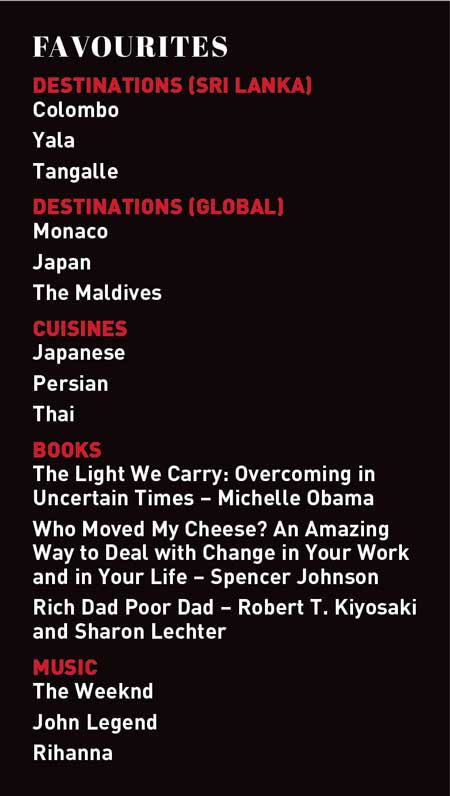
Our diverse backgrounds and understanding of the tough and systematic challenges faced by newcomers has shaped the app’s development to be genuinely empathetic and supportive.
Together, we aim to empower fellow migrants in the UK, providing them with a comprehensive tool to navigate their settlement, gain access to resources and foster a sense of belonging in their new home.
As a politician, I shape policies and advocate for marginalised communities; as an entrepreneur, I develop innovative solutions and address societal gaps
Q: So what is your vision for the future? And how do you plan to achieve it through your political career?
A: In the future, I envision a fair, inclusive and sustainable society. My goal is to address systemic inequalities, protect the environment, and promote social justice through policies and initiatives.
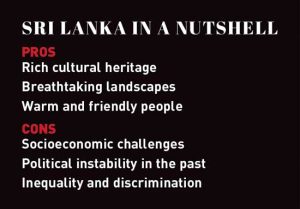
As a politician, I’ll engage in grassroots activism, collaborate with like-minded individuals and organisations, and advocate for change. Believing in collective action, I aim to bridge communities, sectors and political ideologies.
Through dialogue, evidence-based policy-making and empowering marginalised voices, I hope to create a brighter and more equitable future for all.

Q: Your take on the ‘grass is greener’ in foreign lands is…?
A: The grass is greener abroad is both a misconception and an inspiration. While different countries offer unique opportunities, we mustn’t overlook the challenges they pose.
Yet, learning from diverse cultures and systems can lead to a more interconnected world.
